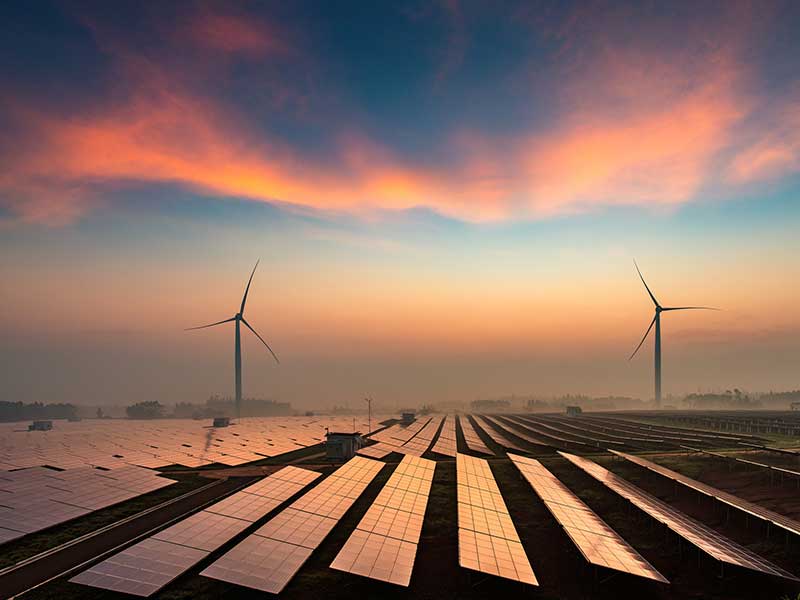Economic ties between Azerbaijan, Turkmenistan and Turkey got a boost recently when officials met in Istanbul to sign an agreement that will see energy companies teaming up to cooperate on renewable resource projects and ‘green’ energy initiatives.
“We are now working to transport energy resources from the Caspian region to Turkey and other markets, and I think our countries will reach the level of exemplary regional and global cooperation in all areas, particularly in the energy sector,” Turkey’s minister for energy and natural resources, Fatih Dönmez, said at a contract signing ceremony on Friday, according to reports by Daily Sabah.
Energy specialists from Turkey could help develop ‘green’ energy capacity in Azerbaijan and Turkmenistan – two Caspian countries rich in hydrocarbons – after having allocated more than $2 billion in Turkey for wind and solar energy projects in 2017. Ankara’s push for an expansion of renewable energy in a country that is starved of fossil fuel resources has led to the construction of windpower plants in five different regions across Turkey, driving up installed capacity from wind and solar sources from zero to 15.2 percent. At the same time, the Turkish government plans to invest $11 billion in energy efficient projects over the next five years, and cut the country’s primary energy consumption by 14 percent.
Meanwhile, vast oil and gas reserves underneath Azerbaijan’s and Turkmenistan’s portions of the Caspian Sea have already made them global exporters of oil and natural gas. But officials in Baku and Ashgabat are looking to diversify the energy mix by bringing in outside expertise that could help shape both countries’ potentials in renewable resources.
The capacity potential for renewables in Azerbaijan exceeds 12,000 megawatts (MW), according to a 2015 study by the State Agency on Alternative and Renewable Energy Sources. Solar power accounts for most of this potential at 5,000 MW, while wind accounts for 4,500 MW. By 2020 and with an investment of anywhere between $2.5 billion and $3.5 billion, officials are aiming to bring wind energy capacity to 800 MW, solar to 950 MW, biogas to 125 MW, geothermal to 150 MW and small hydropower to 150 MW.
Earlier this year an agreement was reached with Total Eren, a subsidiary of EREN Renewable Energy Group, to develop renewable energy in Azerbaijan. Total Eren has committed to generating 420 MW of power from wind, solar and bioenergy sources, all in line with the Strategic Roadmap on the Development of Utilities developed by the government.
In Turkmenistan, which lies on the eastern shore of the Caspian Sea, annual sunshine duration ranges anywhere from 2,768 total hours per year – comparable to that in the U.S. state of Arkansas – to 3,150 hours, or slightly less than that in New Mexico. The Karakum Desert, which covers about 80 percent of Turkmenistan’s land mass, has the potential for solar farming due to vacant land and the high content of silicon found in sand – an essential ingredient for manufacturing solar panels.
At the same time, the western part of the country, which is bordered by the Caspian Sea, is known for strong wind currents that are sufficient for sustainable wind farming. Scientists have already developed a self-sustaining solar-wind complex, capable of providing water and power even in desert areas; solar-powered desalination stations and hot water facilities, and a solar greenhouse with heat-saving soil.







 Russian Foreign Minister Sergei Lavrov has reasserted that Moscow has no intentions to stop the fighting in Ukraine, even if peace talks commence.
Russian Foreign Minister Sergei Lavrov has reasserted that Moscow has no intentions to stop the fighting in Ukraine, even if peace talks commence.
 Iran has refuted reports of alleged damage to Shimon Peres Negev Nuclear Research Centre located southeast of Dimona, Israel, during the recent air...
Iran has refuted reports of alleged damage to Shimon Peres Negev Nuclear Research Centre located southeast of Dimona, Israel, during the recent air...
 Iran’s Foreign Minister, Hossein Amir-Abdollahian, has labeled a foiled Israeli drone attack in certain parts of the country as a "failure" for Isr...
Iran’s Foreign Minister, Hossein Amir-Abdollahian, has labeled a foiled Israeli drone attack in certain parts of the country as a "failure" for Isr...



